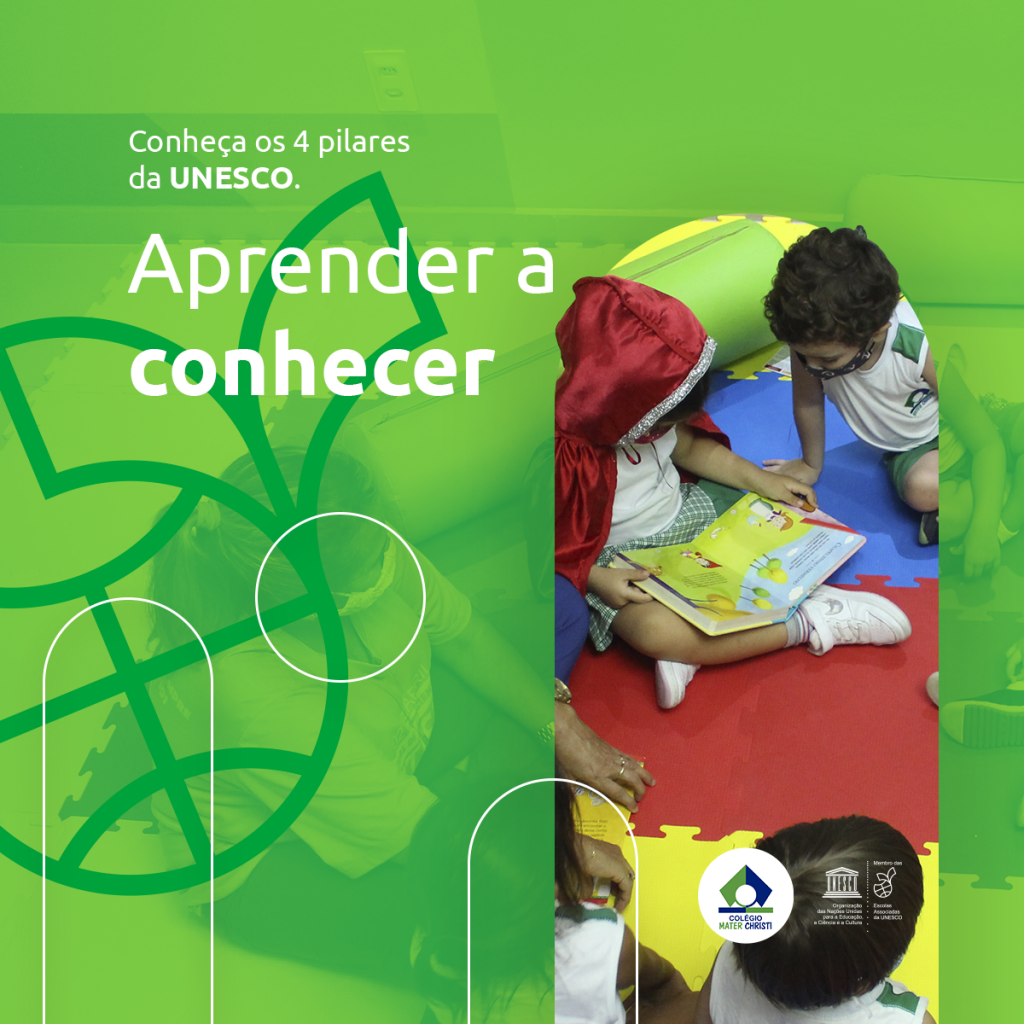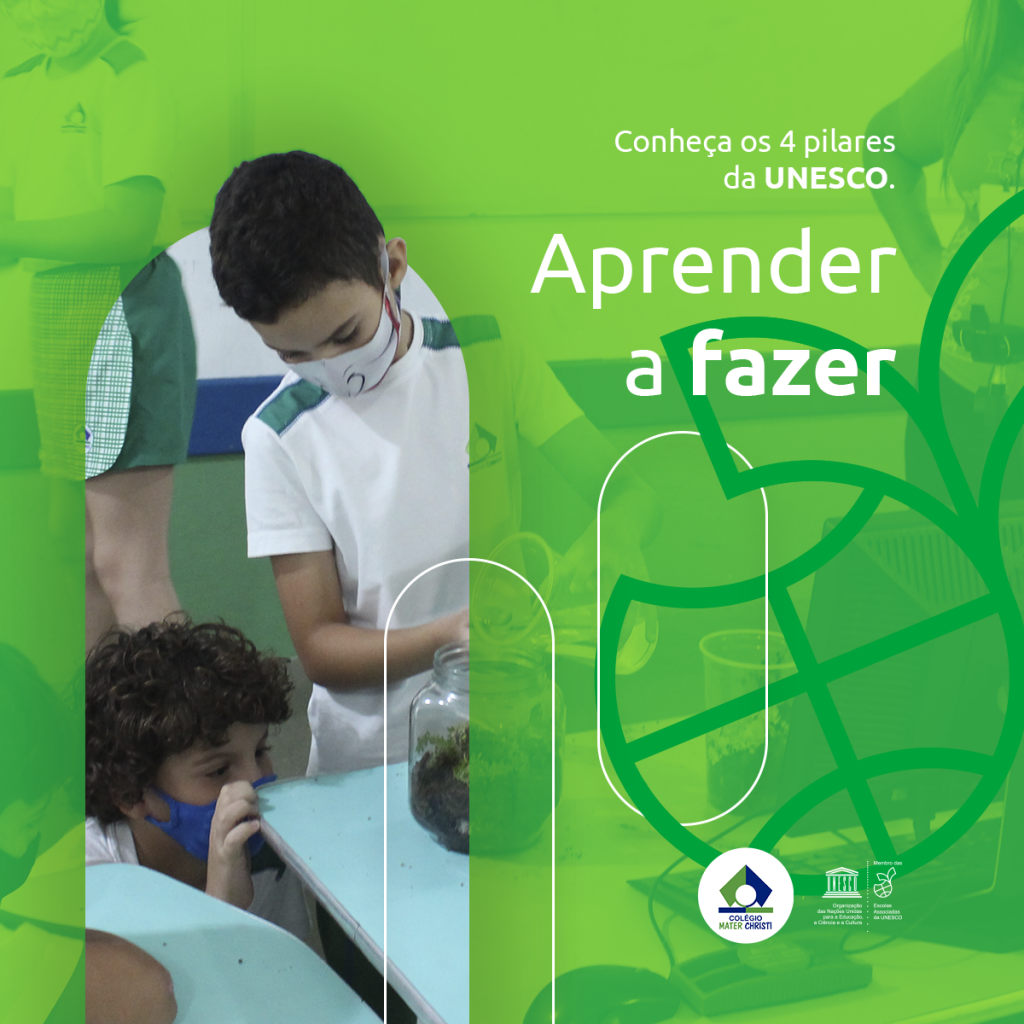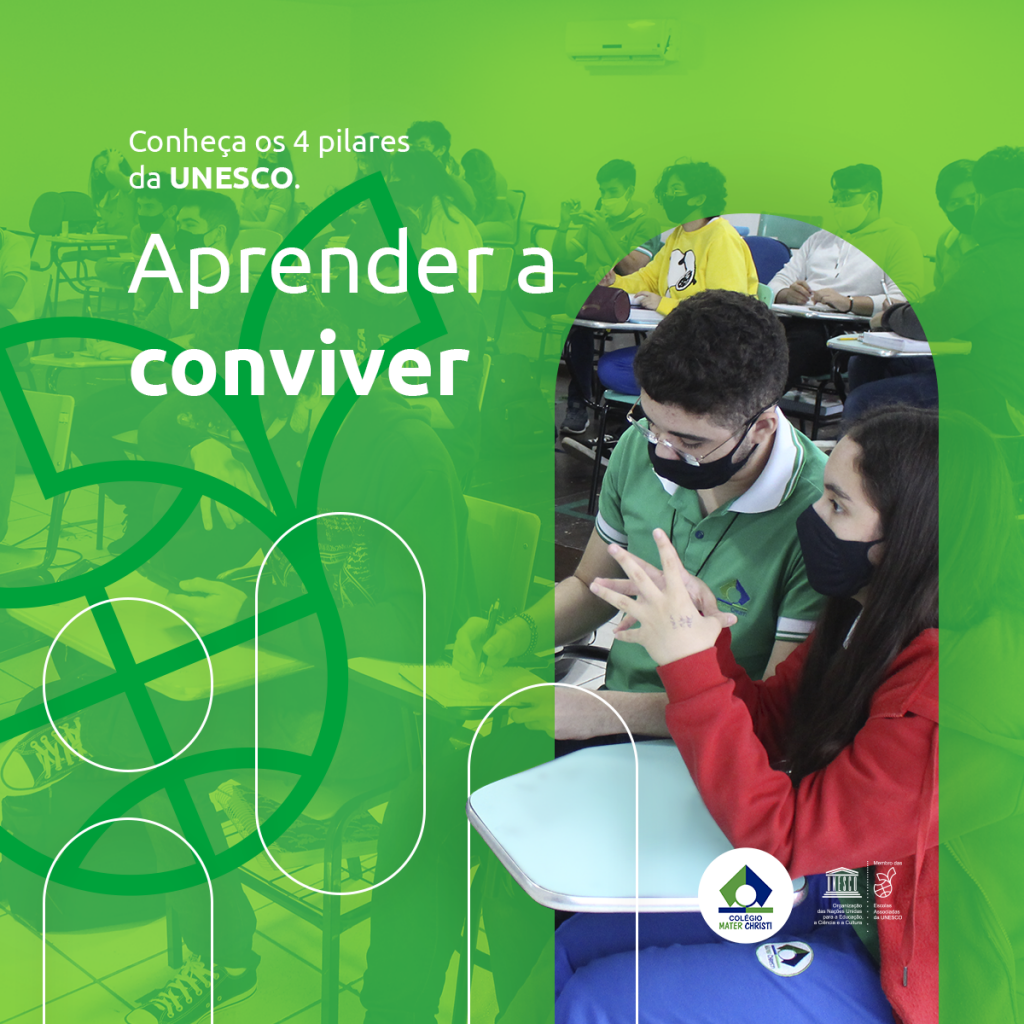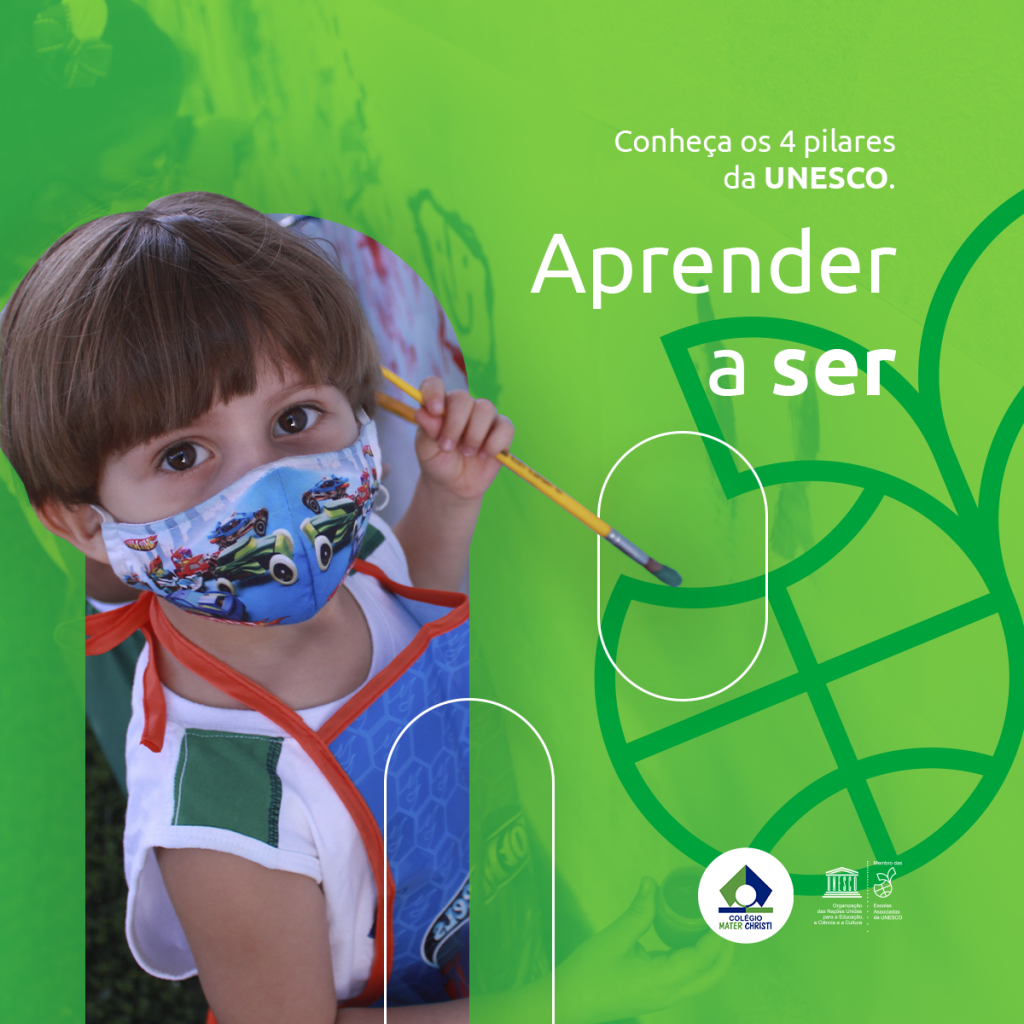Today, we would like to talk to you about the four pillars of education,
created by UNESCO, which are essential to our pedagogical practice.
Shall we know a little more about them?
The 4 Pillars of UNESCO
Mater Christi College is committed to educating happy, capable and
excellent people. Our transformative education is anchored by the four
pillars of UNESCO. The UNESCO pillars of education were drawn up in
1999 by Jacques Delors, a French political professor and economist.
Published in the report: “Education: a treasure to discover”, they define
the learnings considered essential for children to develop cognitively
and socially. They are: ⠀
Learning to know
This pillar involves the act of understanding, discovering or building
knowledge. More than acquiring knowledge, children should feel
pleasure in learning and constantly improve themselves.

Learning to do
In addition to gaining theoretical knowledge, children need to put it into
practice. By mobilizing their cognitive skills, they must be able to make
choices, think critically, solve problems, act in the most appropriate way
in uncertain situations, and not rely on pre-existing models.

Learning to live together
This pillar is about learning non-violence, in which hostility gives way to
a collaborative spirit. Discovering that the other is different and, at the
same time, facing this diversity as something normal, is what makes
coexistence lighter and allows the creation of affective bonds. Along
with this, there is the strengthening of empathy, tolerance and respect.

Learning to be
The last of UNESCO’s pillars of education is related to the development
of the being as a whole. In this case, everyone needs to be able to
think critically and autonomously, being able to form their own judgment
call.

